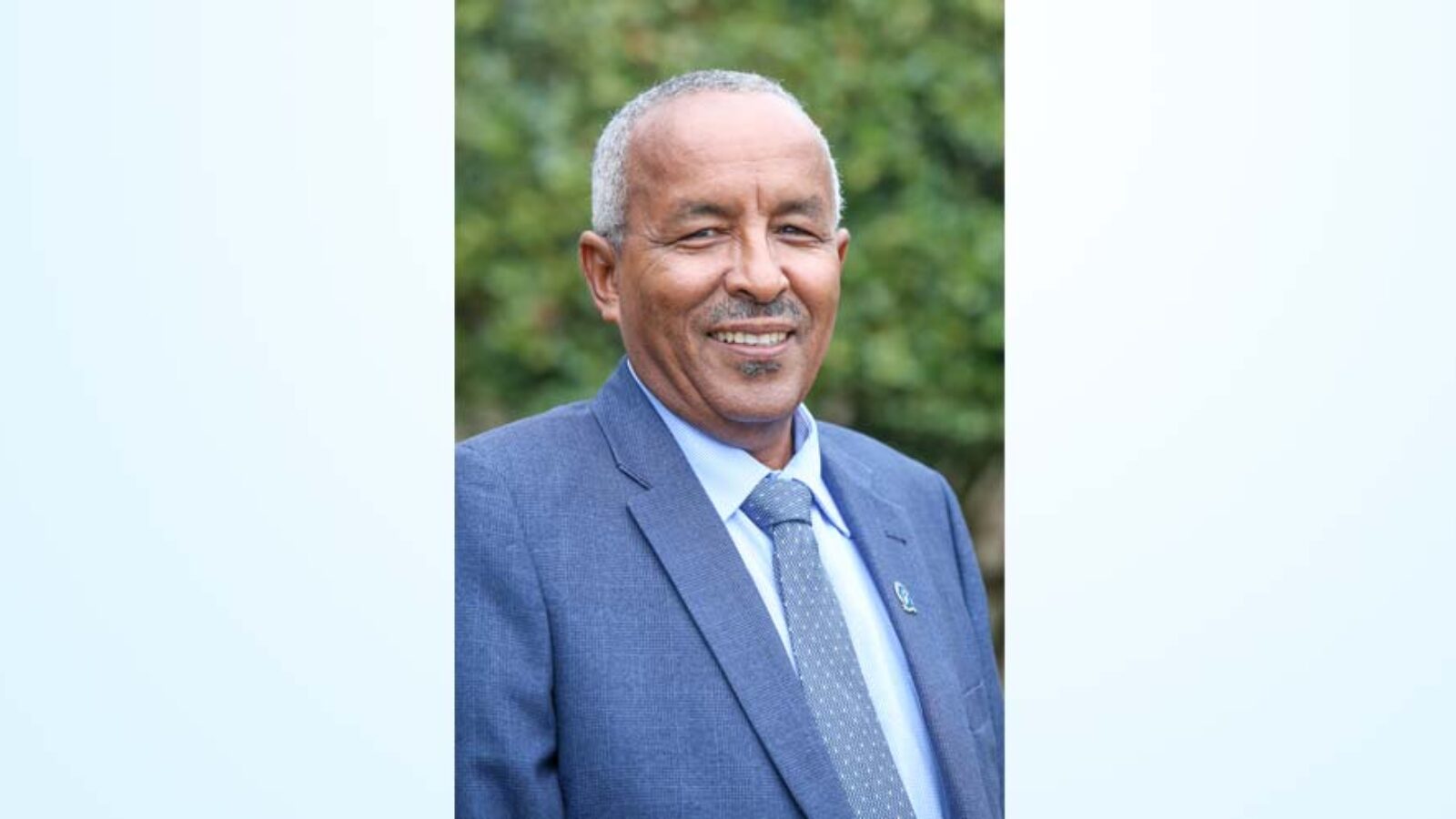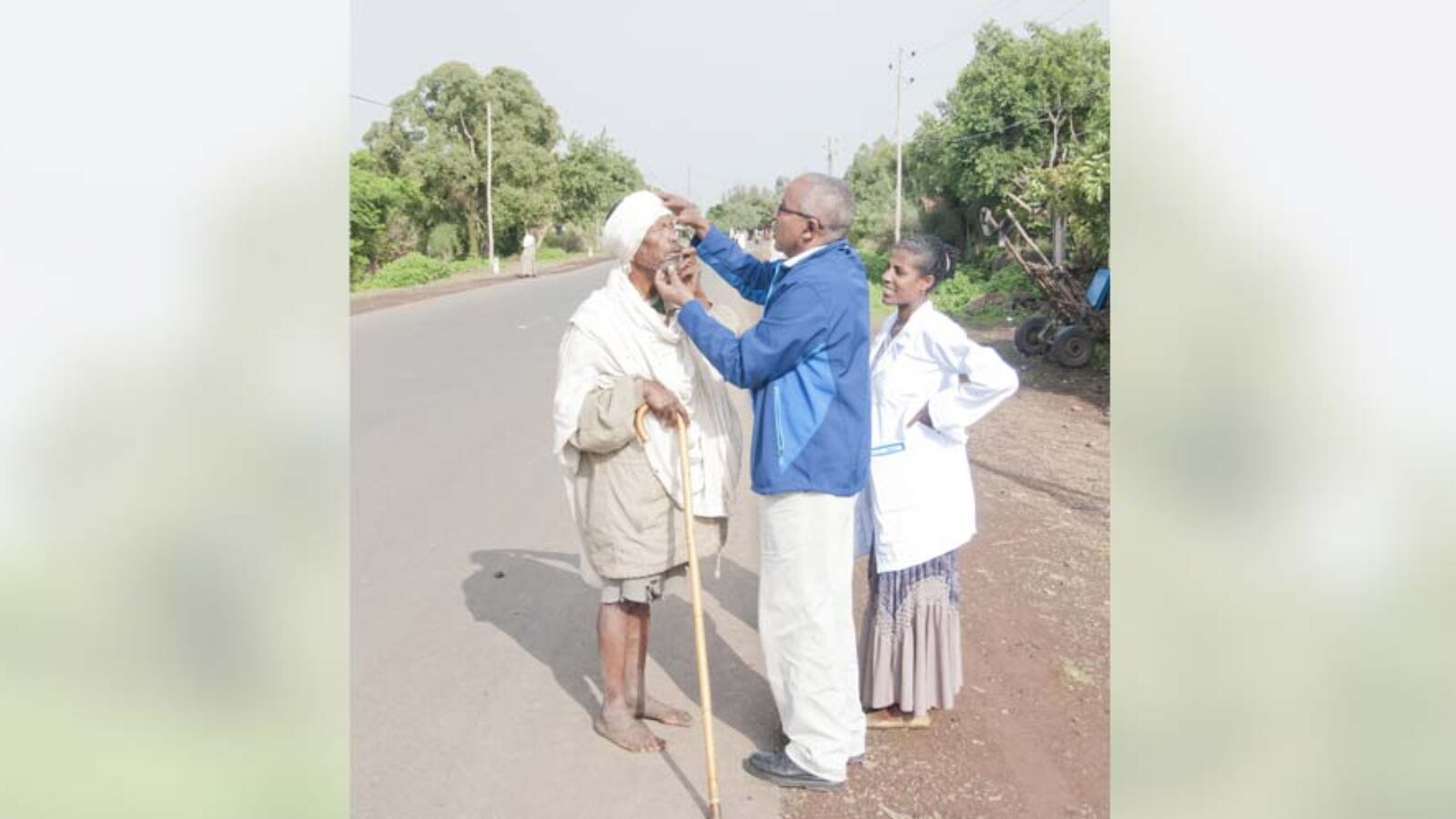Ethiopian Helps Others Perform Sight-Saving Surgery
Mulat Zerihun cares about the eyes and speaks from the heart.
After working in ophthalmic care with the Ethiopia Ministry of Health for 27 years, Zerihun joined The Carter Center in 2005. The grandfather of six is the Carter Center Trachoma Control Program’s senior technical advisor for Ethiopia’s Amhara region, based in the regional capital, Bahir Dar.
“Because of its longstanding support, The Carter Center is a well-known and well-trusted organization in our region,” he said. “It makes me proud to be a member of this organization.”
In collaboration with the regional health bureau, Zerihun oversees the training of health professionals to perform sight-saving eyelid surgeries for people suffering from a condition called trachomatous trichiasis, or TT, caused by repeat trachoma infections. TT can force a patient’s eyelashes to turn inward and scratch the cornea, causing intense pain and possibly leading to blindness. The 20-minute eyelid procedure turns the lashes back outward, stopping the blinding progression. The Carter Center has supported the provision of such surgeries to more than 740,000 people in Amhara since 2001.
Zerihun estimates that The Carter Center-supported program in which he plays a significant role has trained more than 1,200 TT surgeons. Would-be surgeons practice on mannequins with 3D-printed eyelids that mimic human tissue, which has greatly improved the quality of training.
Zerihun’s support for the program goes beyond his technical expertise. In 2005, soon after he joined The Carter Center, Zerihun was tasked with organizing a visit to the Amhara region by former U.S. President Jimmy Carter. It made him nervous to be responsible for planning such a high-profile event, “but excitement was part of the nervousness,” he recalled.
“That visit was really remarkable: an American president visiting Mosebo, a very small village in Ethiopia, is very impressive,” Zerihun said.
President Carter said during the visit that he couldn’t sleep after seeing the prevalence and severity of trachoma in the village, and he promised to search the world over for partners and funding to improve conditions there.
“He kept his promise,” Zerihun said.
Today, after decades of implementation of the World Health Organization-endorsed SAFE strategy (surgery, antibiotics, facial cleanliness, environmental improvement), The Carter Center has supported the Amhara Regional Health Bureau and Ministry of Health of Ethiopia to provide not only TT surgeries, but also distribute more than 200 million doses of antibiotic in nearly 3,500 villages and reach more than 8,700 schools to provide trachoma prevention education. As a result, Amhara is making significant progress, with 54 health districts, home to more than 5 million people, that no longer require mass drug administration to combat trachoma.
Zerihun believes trachoma can be eliminated, despite Amhara’s status as the most trachoma-endemic region in Ethiopia.
“If we work in an organized way, with the leadership of the government and the support of partners and the participation of the communities, I don’t think it will take more than seven to 10 years,” he said. “Well organized, well integrated, implementing the SAFE strategy, it’s gone.… I’m very optimistic.”
Zerihun feels it would be “a sacrilege” not to be a part of the work.
“I consider myself a servant of my community,” he said. “These are my people. And if they lose their sight, it is my country that will shoulder the burden, and it is me who is supposed to support my people. So, if I can contribute to keep them producing, to keep them healthy, to keep them happy, that is what inspires and motivates me. If I do the service, it is because it is my responsibility.”
Global Impact Starts with You
Your support sustains the Carter Center's mission of waging peace, fighting disease, and building hope around the world.



